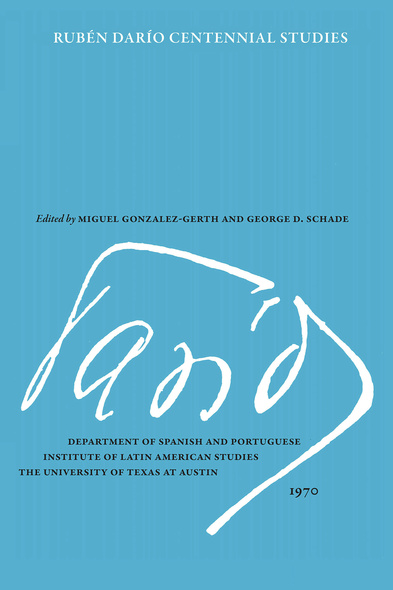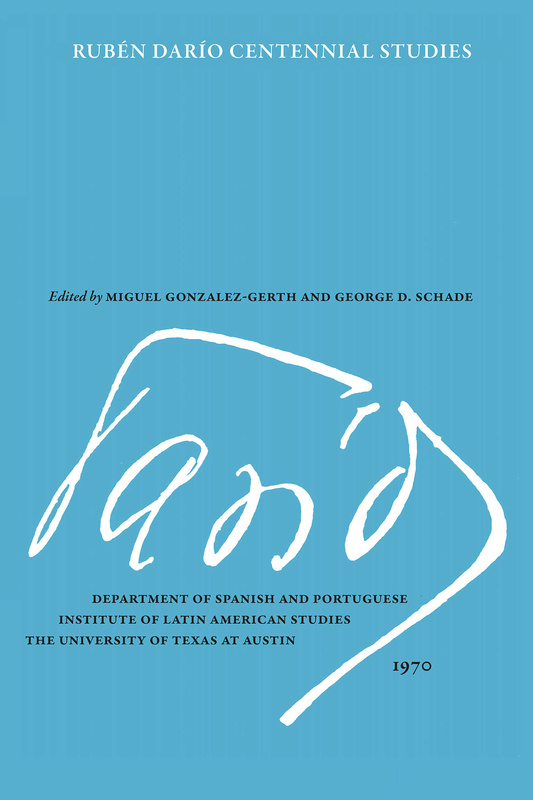Our shopping cart is currently down. To place an order, please contact our distributor, UTP Distribution, directly at utpbooks@utpress.utoronto.ca.
Ruben Dario Centennial Studies
Rubén Darío (1867–1916), the undisputed standard-bearer of the Modernist movement in Hispanic letters, was born in Nicaragua. In 1886 he went to Chile, where he published Azul (1888), his first important book of poems and stories. Later he lived for extended periods in Argentina, Spain, and France, and in these countries produced his best work: compelling poems of beauty, style, and dignity, especially Cantos de vida y esperanza (1905). The perfection of form, exotic essences, and rich ornamentation of his earlier work give way in his most mature poems to self-probings and doubts, the anguish so characteristic of twentieth-century literature. But the hedonistic note, the quenchless appetite for life, dominating Azul and Prosas profanas (1896) never die out, and are magnificently present in El poema del otoño (1910). Darío has had a tremendous impact on Hispanic literature. He is one of the best examples of the poet who is true to his art as determined by his innermost impulses. His poetry has fertilized a whole generation of writers in Spanish America and in Spain, and even now his influence continues to be felt.
Miguel Gonzalez-Gerth is Professor Emeritus of Spanish at the University of Texas at Austin.
George D. Schade (1926–2010) was Professor of Spanish and Portuguese at the University of Texas at Austin and was a noted translator.
- Introduction
- Miguel Enguídanos. Inner Tensions in the Work of Rubén Darío
- Eugenio Florit. The Modernist Prefigurement in the Early Work of Rubén Darío
- Allen W. Phillips. Rubén Darío and Valle-Inclán: The Story of A Literary Friendship
- Arturo Torres-Rioseco. Rubén Darío: Classic Poet
- Enrique Anderson-Imbert. Rubén Darío and the Fantastic Element in Literature
- Biographical Notes of the Contributors





